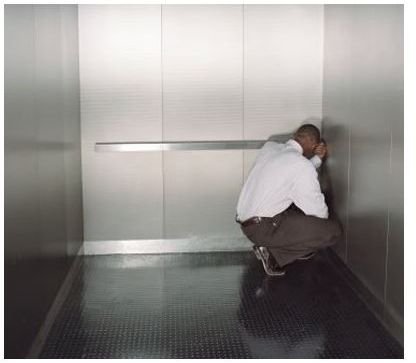The Causes of Panic and Anxiety Attacks
Introduction to Causes of Panic and Anxiety Attacks
While much is known about the effects and treatments of panic and anxiety attacks, much is still to be determined about the causes of them. Although psychiatry suggests that chemical imbalances in the brain are the main trigger for panic and anxiety attacks, research has shown that 40% of people respond to SSRIs, while 30% respond to a sugar pill placebo, suggesting that the trigger is much more fundamental in nature.
Even though a stressful event can cause an anxiety or panic attack, they often occur for no reason at all, lending more credence to the belief that panic and anxiety is fundamental in nature, perhaps the body’s way of responding to a hidden untreated mental trauma.
While these issues continued to be explored by the psychiatric community, there are medical reasons why one might have a panic or anxiety attack as well. These include mitral valve prolapse, hyperthyroidism, and hypoglycemia.
Causes of Panic and Anxiety Attacks: Trauma
When a person has gone through a dysfunctional childhood or other deep seated trauma, they often bury the memories as a defense mechanism. Although they move on in years chronologically, they never move on emotionally. The onset of panic attacks usually comes on in the early 20s, although some evidence suggests that they can start as early as the teen years. When someone is essentially hiding from themselves, they can only go on for so long before the manifestations of mistreatment, abuse, neglect, or other trauma begin to manifest themselves in the form of anxiety and panic.
When suppressed memories try to come through, and a person’s defense mechanism prevents them from understanding what is troubling them, the result is fear in the form of a panic / anxiety attack.
Causes of Panic and Anxiety Attacks: Mitral Valve Prolapse
If the heart is functioning properly the blood flows from the left atrium to the left ventricle quite smoothly because there is a tight seal that closes off the mitral valve preventing the blood from flowing back into the left atrium. However, in mitral valve prolapse, the flaps of the mitral valve do not close properly, allowing blood to leak back into the left atrium.
This can cause heart palpitations, fainting, chest pain, and shortness of breath. Also, 40% of patients with mitral valve prolapse have dysautonomia; an imbalance of the autonomic nervous system (ANS.) The ANS has two parts, the sympathetic and parasympathetic nervous systems. The sympathetic nervous system is what triggers the flight/fight response when there is a threat, and the parasympathetic nervous system is what turns it off when our environment is back to normal.
When the system is out of balance due to mitral valve prolapse, it can trigger panic and anxiety attacks, migraines, fainting spells, and irritable bowel syndrome, which is often associated with generalized anxiety disorder.
Causes of Panic and Anxiety Attacks: Hyperthyroidism
When a person has hyperthyroidism, their body produces too much thyroid hormone. This can speed up the heart rate, causing palpitations, increased blood pressure, and a triggered flight/ fight response. This all leads to the common signs of panic/anxiety attacks - trembling hands, chest pain, shortness of breath, and unexplained fear. The ups and downs of the thyroid gland lead to episodes of extreme hyperthyroidism, causing severe panic/anxiety attacks which are very erratic in nature.
Causes of Panic and Anxiety Attacks: Hypoglycemia
When a person suffers from hypoglycemia, they often have panic attacks related to a sudden drop in their blood sugar level. When the body is suddenly deprived of glucose, the brain is starved, which in turn leads to increased adrenaline production and the flight/fight response which sets off panic/anxiety attacks.
References
- Causes of Panic and Anxiety Attacks - https://www.helpguide.org/mental/panic_disorder_anxiety_attack_symptom_treatment.ht
- Mitral Valve Prolapse - https://www.healthcentral.com/anxiety/c/428899/85725/attacks-deception
Photo Credit
- Panic Attack - Photobucket - wally666247
